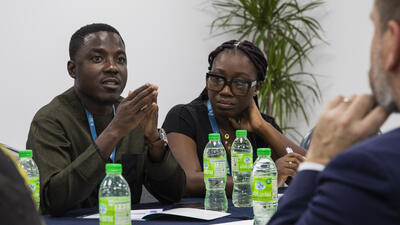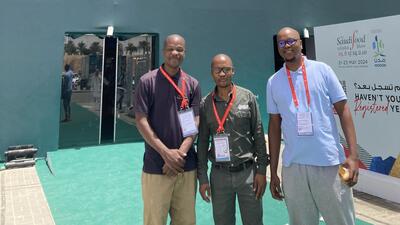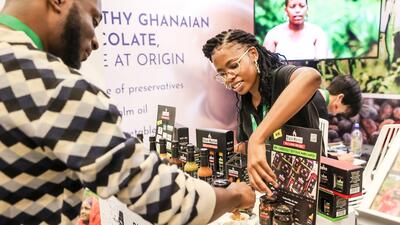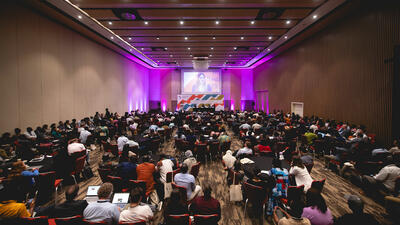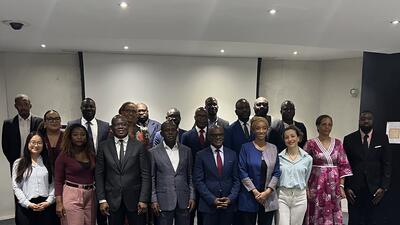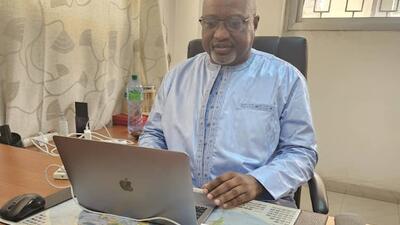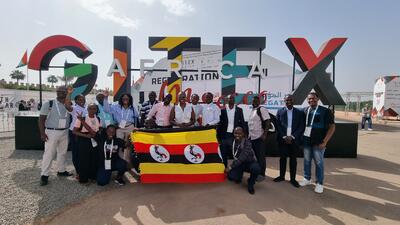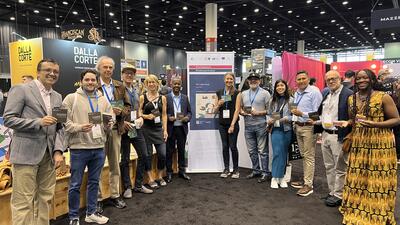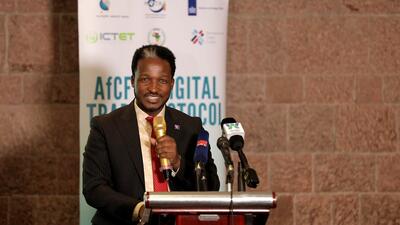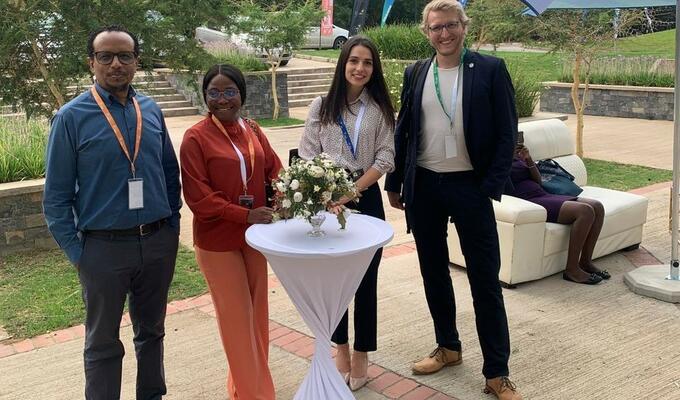

African tech hubs can advance critical economic sectors and unlock women’s full potential on the continent
More than 500 participants attended this year’s flagship AfriLabs event in Lusaka, Zambia. The conference was a unique opportunity for tech hubs to network with government, businesses, development agencies, academia and investors from the African technology and innovation ecosystems.
“It is important for tech and innovation ecosystem players and enablers to come into one room and connect and interact on a high level where governments can start to see our impact,” said Mara Zhanet Michelo, Founder and CEO of Jacaranda Hub.
Zambia’s minister of technology and science, Felix Mutati, was the keynote speaker at the October event, which also hosted more than 3,000 virtual participants from 260 African cities.
“Technology should not be a privilege; it should be a human right,” stated Michelo, whose Jacaranda Hub supports young Zambians in ICT and entrepreneurship through innovation hubs.
“Technology also unlocks the potential of women so we should be deliberately creating tech opportunities for women,” Michelo added.
ITC’s NTF V Tech and FastTrackTech project, powered by Switch ON, sponsored the event and the participation of three hubs to the Lusaka conference: Kumasi Hive from Ghana, Orbit Innovation from Ethiopia and StartHub from Uganda.
Benedicta Naa Odarkor Ablateye, Deputy Hub Manager of Kumasi Hive in Ghana, said attending the conference was an opportunity to learn from a tech cadre of diverse backgrounds.
“Afrilabs are always exciting events as it gathers participants from all over Africa, and I have learned the importance of collaborating with different people,” said Ablateye.
“These networking sessions have built up my understanding of people and hub management,” she added. “Tech hubs and jobs are the future. In the long run it is going to improve our economic situation,” said Ablateye.
Kumasi Hive focusses on training women on the areas of technology and data science and advocates strongly for women’s inclusion in IT sectors.
“When we realized that women are relegated to the background when it comes to technology, we knew it was critical to make the tech space attractive to women. It is about education and advocacy,” Ablateye said.
Many businesses in the informal sector across Africa are driven by women. “But when we talk about gender equality or equity, we are not there yet. We have not created an environment for gender mainstreaming,” Michelo noted.
Kumasi Hive works with international organizations to propel gender equality in the tech ecosystem and, to that end, runs tech training in scratch programming, coding, entrepreneurship and marketing skills in Ghanaian junior and senior high schools.
“Most successful startups are tech-based, and combining tech with other sectors will allow for powerful solutions, for example in medtech, agritech and edutech,” said Nuria Rull, programme officer at ITC who spoke at the event.
“This combination can create key changes in these sectors in many African countries,” Rull said.
Rull contributed to the discussion on the Zambian ecosystem and the role of Zambian tech hubs, government and partners in developing an innovative start-up ecosystem full of opportunities, including the recent creation of an angel investment network. She also mentioned ITC’s and Zambian tech ecosystem players interest to continue building the ecosystem and offered her backing to contribute to the formalization of the Zambia hubs consortium.
She added that ITC is interested in continuing its support to the Zambian tech landscape, including the formalization of the Zambian hubs consortium.
This was the first year that Zambia hosted the AfriLabs event, highlighting the growingly dynamic ecosystem in country: hubs are able to offer high quality services to entrepreneurs, from incubation, acceleration, tech support, to initiatives for women-led start-ups.
Michelo underlined the importance of ITC in driving the Zambian tech and innovation ecosystem forward, from mapping the landscape to helping put together a consortium of players to push a unified agenda when it comes to policies and frameworks for start-ups and innovators.
“But ITC’s contribution extends beyond the country and the AfriLabs gathering. Their support encompasses how to be a digital citizen, the role of a digital economy and how to establish networks of people who can create products and services in that digital space as well drive the digital transformation agenda forward,” Michelo said.
“It’s important to create an environment where Africa can connect and collaborate and not always look externally” she added.
Netherlands Trust Fund V - NTF V
The Netherlands Trust Fund V (NTF) (July 2021 – June 2025) is based on a partnership between the Ministry of Foreign Affairs of The Netherlands and the International Trade Centre. The programme supports MSMEs in the digital technologies and agribusiness sectors. Its ambition is two-fold: to contribute to an inclusive and sustainable transformation of food systems, partially through digital solutions, and drive the internationalization of tech start-ups and export of IT & BPO companies in selected Sub-Saharan African countries.
FastTrackTech Switch ON
The International Trade Centre’s #FastTrackTech project is harnessing the transformative power of the digital economy to generate jobs and contribute to the economic growth and productivity. The project is powered by the Switch ON initiative. ITC’s recent initiative, Switch ON, focuses on digital connectivity, prioritizes investments in the sector and calls on policymakers to create the right conditions for small businesses in developing countries to profit from digital trade and entrepreneurship. It also focuses on delivering affordable networks and unlocking access through education and digital literacy.






